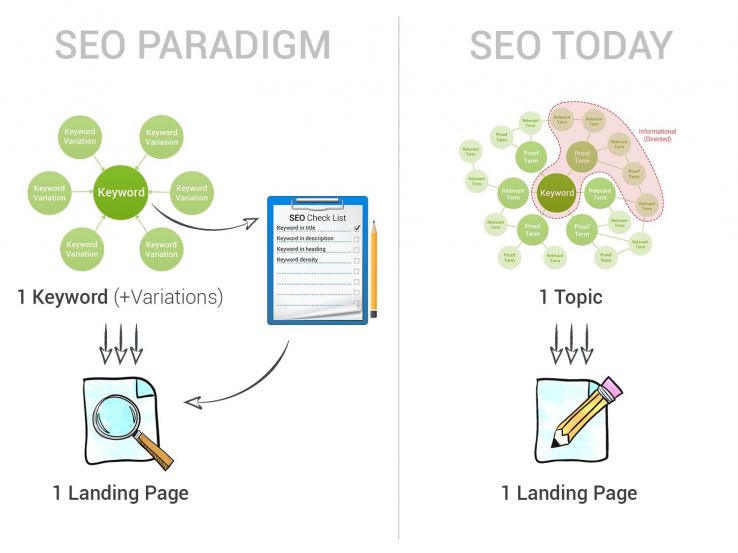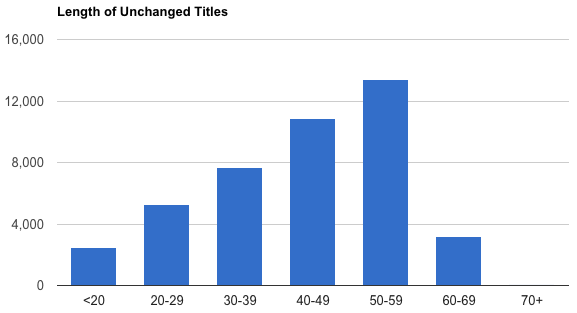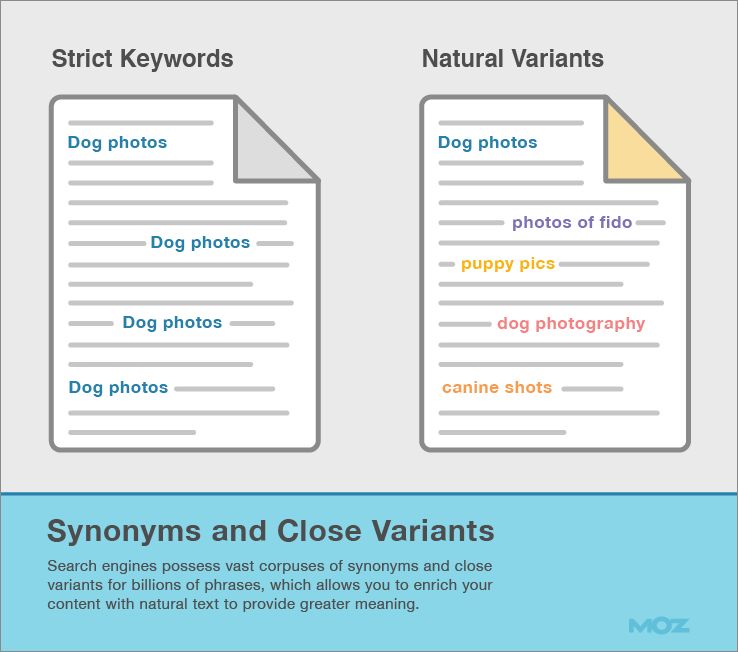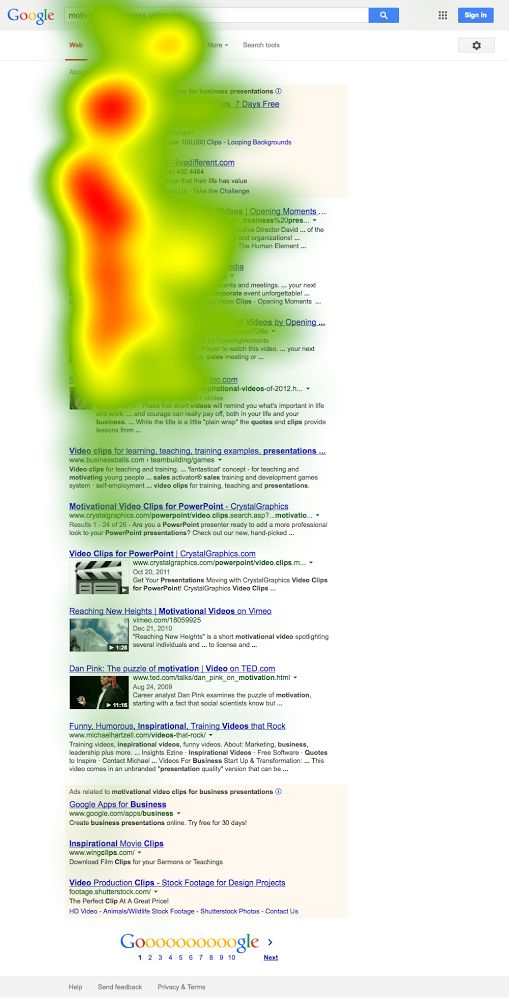4 Recent SEO Visualizations You May Have Missed
If it seems that SEO is changing at the speed of light, it’s not your imagination. Google makes multiple changes to SERPs every day, so you don’t need to wait for the next big algorithmic announcement to study the changes and modify your tactics for long-term SEO success. Once a month we will be rounding up some of the latest SEO trends and highlights in the form of data visualizations. We’ll examine current trends in SEO algorithms, and discuss best practices, as brought to you by some of the best and brightest in search engine optimization and search engine marketing.
1) Write for User Intent
Searchmetrics discusses ranking factors on the Moz Blog: Searchmetrics Ranking Factors 2014: Why Quality Content focuses on topics, Not Keywords. There are no shortcuts or quick wins in the new world of user intent and keywords. The Searchmetrics Ranking Factors 2014 study finds that keywords in a website’s URL and domain name are declining as rote correlation ranking factors. This decline carries through to h1s and h2s as well. The trend for these keyword ranking factors is negative — with approximately 10% of the URLs in positions 1 through 30 using the keyword in h2s, and 15% using the keywords in h1s. In other words, keyword placement alone is no guarantee of high rankings. Clearly a rote checklist for adding keywords will not suffice for high SERP rankings.  Writing content for SEO can no longer focus on one keyword and its variations per page. Google is analyzing and returning results to the SERPs for keyword groups around a topic. However, it’s not just the keyword groups that are important, but the intent of the user when searching for those keywords. Google is learning to recognize related and proof keywords — keywords related to your content topic, e.g. egg and omelettes. It is looking for content that focuses on in-depth topics, and that provides clear signals indicating your content is what the user wants to read.
Writing content for SEO can no longer focus on one keyword and its variations per page. Google is analyzing and returning results to the SERPs for keyword groups around a topic. However, it’s not just the keyword groups that are important, but the intent of the user when searching for those keywords. Google is learning to recognize related and proof keywords — keywords related to your content topic, e.g. egg and omelettes. It is looking for content that focuses on in-depth topics, and that provides clear signals indicating your content is what the user wants to read. 
2) Make Title Tags Short and To the Point
AuthorityLabs tells us how it is with title tags today, “Google Doesn’t Think Your Title Tags Are Good Enough.” Have you noticed title tags that were completely changed by Google in your SERP results? How do you get the title tags you want in the SERPs? While there is no exact science, findings indicate that keeping your page titles between 50 and 59 characters may help. Of course, making sure that the title matches the landing page’s content is important too. 
3) Use Synonyms
Get past keywords on the Moz blog with, “More than Keywords: 7 Concepts of Advanced On-Page SEO.” Synonyms do play a role, in up to 70% of searches, in fact. It is important to examine as many synonyms (and antonyms) as possible when doing keyword research. Use these synonyms, and use them naturally throughout the content you create. You are not writing for bots or algorithms. You should be writing for humans, and thinking about the human need behind your content. What questions are you trying to answer for your user? This should be your primary objective. 
4) Optimize for Multiple Rankings
Moz discusses where the eyes have it in SERPs, “Eye Tracking in 2014: How Users View and Interact with Today’s Google SERPs.” As a result of the progression of searching habits, based on users’ past experiences and the increased adoption of searching on mobile devices, we are seeing a shift in searching behavior. Users are:
- Looking less at the right-hand side of the SERPs
- Reading vertically
- Looking at more results in the SERPs
- Not spending much time on any single result
 What does this mean for traditional SEO? It’s important to optimize your content for user intent, and also spend the time on basic SEO elements. You can use Schema markup to create rich snippets that may show in the SERPs and increase your CTR. If you can get multiple SERPs results for the same keyword/topic content grouping, you obviously have a better chance of winning the user’s click.
What does this mean for traditional SEO? It’s important to optimize your content for user intent, and also spend the time on basic SEO elements. You can use Schema markup to create rich snippets that may show in the SERPs and increase your CTR. If you can get multiple SERPs results for the same keyword/topic content grouping, you obviously have a better chance of winning the user’s click.
SEO of the Fittest
It seems that the new age of SEO is really the age of old tried-and-true with something new. This evolution of content for the user comes with great opportunities for companies who invest in their SEO strategy. Have you seen any articles or blog posts that have made an impact on, or given you new considerations for, your SEO strategy? I’d love to hear from you. Please share your thoughts and finds in the comments below.
What's Next?
Profound Strategy is on a mission to help growth-minded marketers turn SEO back into a source of predictable, reliable, scalable business results.
Start winning in organic search and turn SEO into your most efficient marketing channel. Subscribe to updates and join the 6,000+ marketing executives and founders that are changing the way they do SEO:
And dig deeper with some of our best content, such as The CMO’s Guide to Modern SEO, Technical SEO: A Decision Maker’s Guide, and A Modern Framework for SEO Work that Matters.




